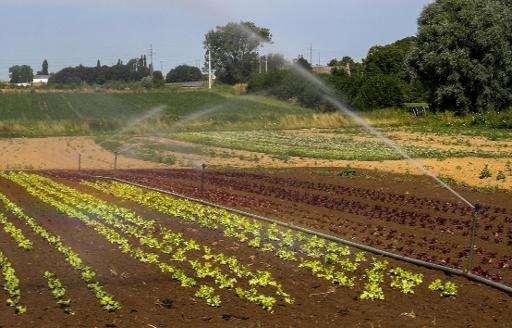Three environmental NGOs are taking Belgium to court, arguing that the State is illegally authorising the use of "highly toxic" pesticides.
Nature & Progrès (Nature and Progress), PAN (Pesticide Action Network) Europe and Bond Beter Leefmilieu (Association for a Better Environment) have filed an appeal with the Council of State (Belgium's supreme court for administrative matters) arguing that a decision by Belgium to authorise the use of certain pesticides should be annulled.
The case centres around the Belgian State's re-authorisation of three pesticides containing abamectin (namely the insecticides Acaramik, Safran and Vargas).
The action is not the first to be taken against the current government relating to pesticides; Nature and Progress and PAN Europe took a case against the Federal Agriculture Minister last year over the use of the insecticide Indoxacarb.
In a joint statement on Wednesday, the three NGOs said that the EU has put in place a rigorous framework for the authorisation of pesticides and that Belgium's authorisation of the use of "highly toxic" abamectin pesticides goes "well beyond" the bloc's regulatory framework.
The NGOs pointed to EU rules which restrict the use of abamectin to completely sealed systems such as greenhouses, which they say Belgium's Federal Government agreed to in 2023. However, they contend that Belgium has now dropped the restrictive conditions for closed areas and has authorised its use outdoors and in tunnels until 2039.
'Protected cultivation': When is a greenhouse not a greenhouse?
Virginie Pissoort, campaigns officer at Nature et Progrès Belgique, explained that while European legislation defines a greenhouse as a closed system, Belgium has opted for a different definition.
"Belgium has created its own directive on the subject, under the term 'protected cultivation', contenting itself with walls and a roof, like a single-storey tunnel, allowing materials and energy to infiltrate through windows, entrances or the ground. This option taken by Belgium of ‘cultivation under protection’ contradicts European requirements," she said.
A report published last year by Nature & Progrès and PAN Europe highlighted that Belgium is one of the biggest users of pesticides in Europe, despite a 2020 commitment to reduce pesticide use.
At the time the report was published in March of last year, it noted that 80% of the active substances labelled as highly toxic by the European Union continue to be used in Belgium.
The NGOs said that the current legislature's record on pesticide reduction is a "sad one" and they called for government investment to support farmers to move away from these substances, as well as a "vision and long term commitment".

